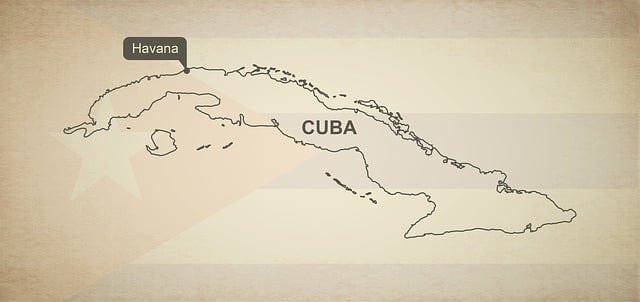In a follow-up on a post yesterday, Cuban health officials finally announced the burden of Oropouche fever on the island.
According to a Cuba Headlines report, the Ministry of Health has reported over 400 confirmed cases on the island up to August.
Ministerio de Salud Pública de Cuba published the following epidemiological situation update on Facebook:
The epidemiological situation in Cuba today is complex, so co-circulation of various viruses such as influenza, dengue and oropouche, detected for the first time in the country since May and currently circulating in the 15 provinces, doctor Francisco Durán, national director of Hygiene and Epidemiology informed the ACN.
About the oropouche, caused by Culex mosquito bite, he expressed that there is a considerable increase in cases and continuous surveillance is maintained because although it was considered benign, recent experiences have shown that it can cause serious complications, he said.
He noted that in Brazil serious cases were reported, including meningnoencephalitis, on the Caribbean island there are no deceased due to this arboviroisis, but the health systems are kept alert, with emphasis on caring for vulnerable groups such as pregnant women to avoid congenital abnormalities.
He emphasized that due to climate change and other social phenomena such as migrations, this virus has ceased to appear exclusively in rural areas, now affecting urban population, leading to an increase in cases.
Durán explained that they are observing all clinical manifestations of fever syndrome and cases with up to three relapses in a month are being recorded, as symptoms of general illness and fever return.
The expert affirmed that there is a lot to study about this new disease, so it is of vital importance for the population to immediately consult the doctor for any symptoms associated with headaches, joints, vomiting, diarrhea and high temperatures.
He emphasized the importance of attending a medical center, because it is necessary to make a proper diagnosis for the co-circulation of several arbovirisis in the region, such as dengue, which is known to develop serious forms.
He emphasized that both viruses require drinking plenty of water to avoid dehydration and warned about the danger of co-infections, such as dengue with oropouche, as symptoms overlap, which hinders clinical management and decision-making on preventive measures.
The current situation demands greater research and understanding of arbovirosis, which is why the eighteenth edition of the International Course on Dengue and Other Arbovirosis is carried out at the Pedro Kourí Institute of Tropical Medicine to train health staff in its prevention and control.
The Minister of Public Health, José Ángel Portal Miranda said Cuba ranks second in the Americas for the number of infections caused by the disease, which had 8,076 confirmed cases across five countries in the region as of August 1. These include Brazil (7,284), Bolivia (356), Peru (290), and Colombia (74). The only two deaths associated with the virus were reported in Brazil at the end of July.
In June and July 2024, 19 imported cases of Oropouche virus disease were reported for the first time in EU countries: Spain (12), Italy (5), and Germany (2). Eighteen of the cases had a travel history to Cuba and one to Brazil, according to the ECDC.
As of last week, 20 travel associated cases were reported in Florida, all from Cuba.





